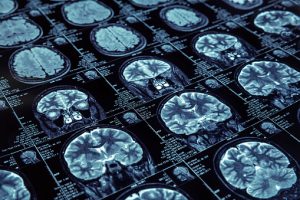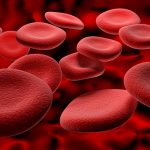 March is Multiple Sclerosis Month, and to help raise awareness about the condition, Bel Marra Health has gathered five of our most informative articles featuring information on an MS diet, multiple sclerosis risk factors, brain shrinkage, and more.
March is Multiple Sclerosis Month, and to help raise awareness about the condition, Bel Marra Health has gathered five of our most informative articles featuring information on an MS diet, multiple sclerosis risk factors, brain shrinkage, and more.
Multiple sclerosis patients may improve working memory and brain connectivity through magnetic stimulation
Researchers are reporting that multiple sclerosis (MS) patients may see an improvement in working memory and brain connectivity through magnetic stimulation. This magnetic stimulation is known as repetitive transcranial magnetic stimulation (rTMS) and it has been reported to help rebuild the brain’s network in multiple sclerosis patients. A recent study published in the Journal of Neurology, Neurosurgery, and Psychiatry found an increase in working memory and changes in the functional connectivity in patients with multiple sclerosis, which shifted the brain’s network towards a healthier level. Continue reading…
 Multiple sclerosis patients on paleo diet found to have reduced fatigue and improvement in quality of life
Multiple sclerosis patients on paleo diet found to have reduced fatigue and improvement in quality of life
Advertisement
A new study published in Degenerative Neurological and Neuromuscular Disease has found an improvement in the quality of life and a reduction of fatigue in multiple sclerosis patients who follow a paleo diet.
The paleo diet focuses on lean meats and fish as well as seasonal produce and local fruits and vegetables. It eliminates refined sugars, dairy, and grains, and most of the food consumed is unprocessed. To see how a paleo diet affected those with multiple sclerosis, the study collected 17 participants who suffer from relapsing-remitting multiple sclerosis—RRMS—and randomly assigned eight of them to follow the paleo diet, while the remaining nine ate as usual and acted as the control group. Continue reading…
 Multiple sclerosis risk factors commonly linked to physical inactivity and poor diet: Study
Multiple sclerosis risk factors commonly linked to physical inactivity and poor diet: Study
Physical inactivity and poor diet are common risk factors contributing to poor health in multiple sclerosis (MS) patients. Developing other health conditions in MS could delay the diagnosis and accelerate the progression of the disease.
Common risk factors referred to as SNAP—smoking, poor nutrition, excess alcohol, insufficient physical activity—contribute to the development of various health conditions in the general population, and especially in patients with MS.
Previous research has attempted to examine how each SNAP factor contributes to MS but failed to determine whether multiple SNAP factors increase one’s risk of MS.
The study involved 69 MS patients who reported on their smoking habits, nutrition, physical activity, and alcohol consumption. The analysis showed that poor diet was the strongest risk factor for MS which was independent of other risk factors. A whopping 85.5 percent of patients did not adhere to dietary recommendations. Furthermore, 73 percent of women and 38 percent of men did not meet the physical activity guidelines either. Continue reading…
 Risk of multiple sclerosis in women may not be reduced with exercise: Study
Risk of multiple sclerosis in women may not be reduced with exercise: Study
The risk of multiple sclerosis (MS) in women may not be reduced with regular exercise, according to the latest research findings. Regular exercise has been shown to reduce the risk of heart disease and certain cancers, but no benefits were seen protecting against multiple sclerosis.
Previously, it was believed that regular exercise could help reduce the risk of multiple sclerosis, but the new findings do not add any evidence to this notion.
The researchers tracked over 193,000 American women for up to 20 years. These women filled out questionnaires about their physical activity. The researchers then calculated how many hours the women spent exercising a week.
Over the course of the study, 341 women developed multiple sclerosis. After accounting for other risk factors that could contribute to multiple sclerosis, the researchers did not find evidence that exercise lowers the risk of the disease. Continue reading…
 In multiple sclerosis patients, brain shrinkage is associated with hemoglobin leak: Study
In multiple sclerosis patients, brain shrinkage is associated with hemoglobin leak: Study
Advertisement
In multiple sclerosis (MS) patients, brain shrinkage is associated with hemoglobin leakage from the damaged red blood cells. The researchers found that treatments that lower hemoglobin levels actually slowed down MS disease progression. Hemoglobin is a protein in red blood cells that carries iron and oxygen around the body.
The study involved 140 participants with advanced multiple sclerosis. Lead author of the study Prof. Charles Bangham explained, “These are exciting but early results. If further studies confirm them, they may suggest new avenues of treatment, and hopefully more options to offer patients in the future.” Continue reading…
Related: Early treatment of multiple sclerosis symptoms extends diagnosis time
